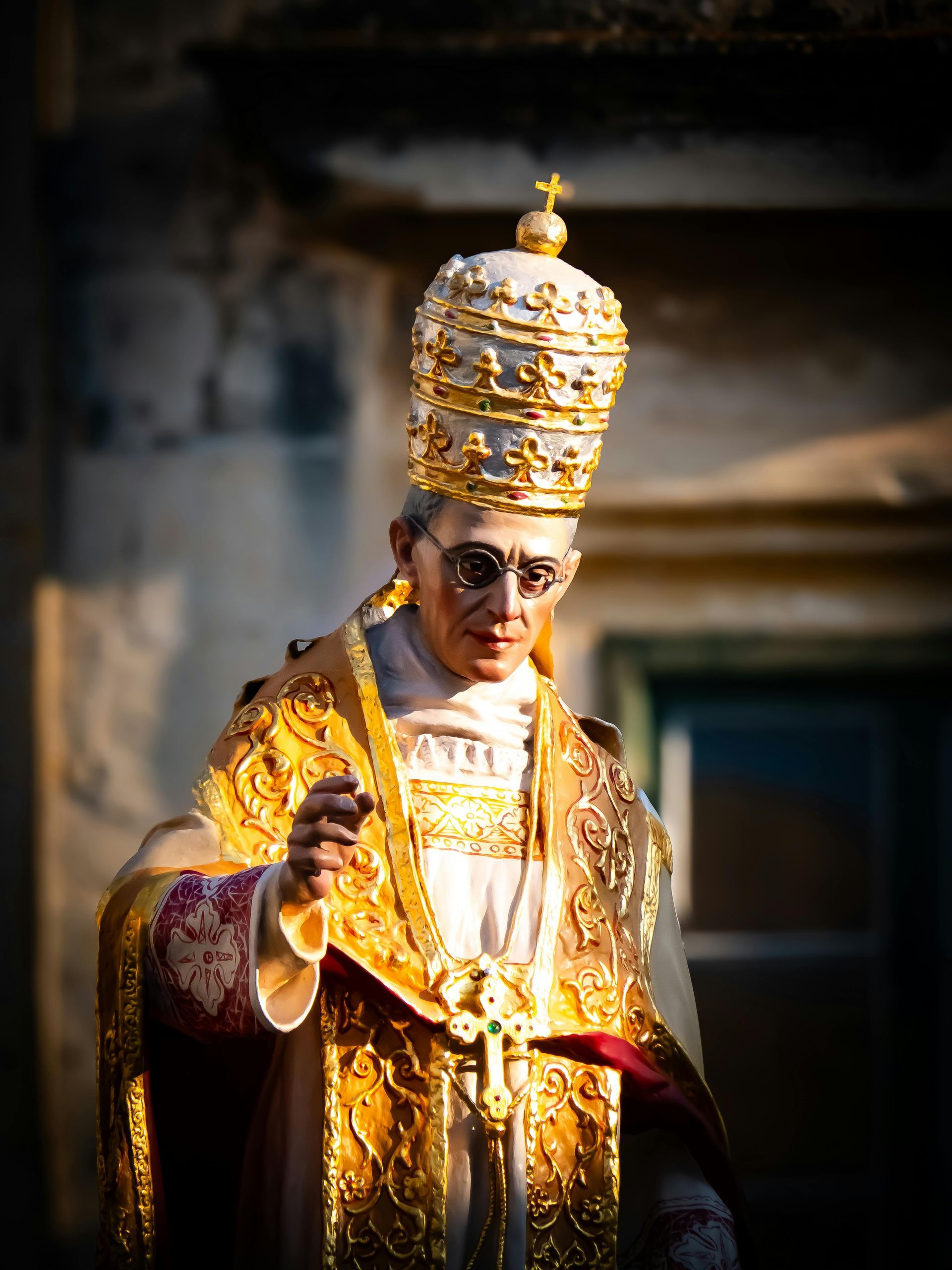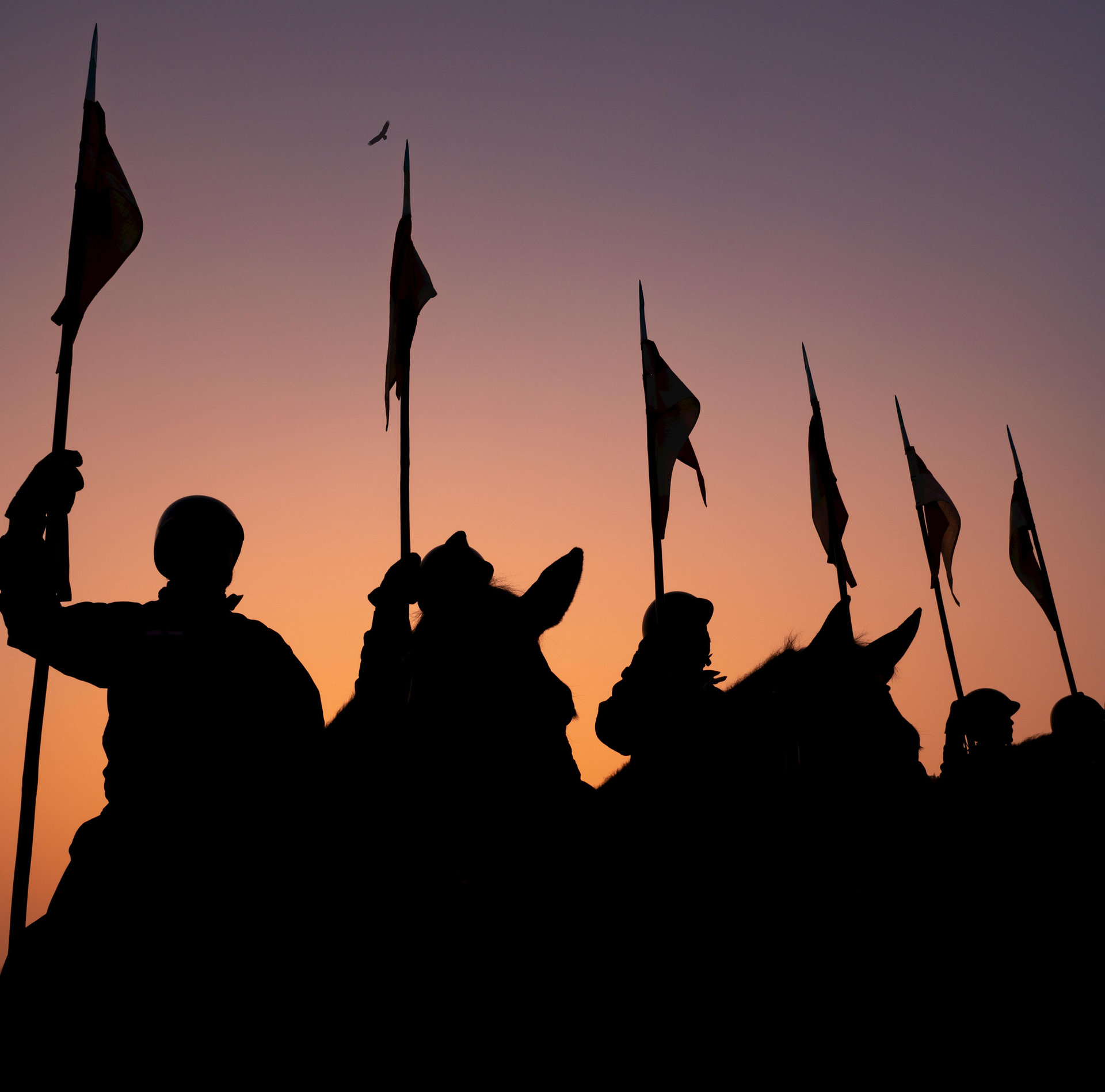The Seven Mountain Mandate
Part 1: My Kingdom is Not of This World
There was a time in the not-too-distant past when Protestant Christianity affirmed that Christ’s kingdom was “not of this world”. John 18:36
One of the criticisms from the Protestant Reformers against the outrageous worldly excess of the papacy was its many violations of the teachings of Jesus Christ. Not only did the papacy accumulate gold and silver sufficient to make a sultan blush, not only did it flood the world with superstitious and unbiblical teachings such as the doctrine of purgatory, the veneration of the saints, the teaching of the mass etc., it claims the right to command the civil state.
The Popes of Rome have expressly declared that the Pope is the ruler of this world. It has never resiled from these statements, or many others like them.
“The Pope and God are the same, so he has all power in Heaven and earth.”i
“The appellation of God had been confirmed by Constantine on the Pope, who, being God, cannot be judged by man.”ii
“The pope is of so great dignity and so exalted that he is not a mere man …. he is as it were God on earth, sole sovereign of the faithful of Christ, chief of kings, having plenitude of power.”iii
“The supreme teacher in the Church is the Roman Pontiff. Union of minds, therefore, requires… complete submission and obedience of will to the Church and to the Roman Pontiff, as to God Himself.”iv
Protestantism condemned the papacy’s greed for temporal authority. As recorded in the book, History of the Reformation, D’Aubigne writes,
In an appeal to the emperor and nobility of Germany in behalf of the reformation of Christianity, Luther wrote concerning the pope: "It is a horrible thing to behold the man who styles himself Christ's vicegerent, displaying a magnificence that no emperor can equal. Is this being like the poor Jesus, or the humble Peter? He is, say they, the lord of the world! But Christ, whose vicar he boasts of being, has said, 'My kingdom is not of this world.' Can the dominions of a vicar extend beyond those of his superior?”v
Jesus Christ did not come to this earth to live in a palace and compel obedience to Himself via the power of government. The Bible clearly describes the nature of His kingdom. It is not like the kingdoms of the empires that have risen and fallen throughout human history.
“And when the Pharisees had demanded of Him when the Kingdom of God should come, He answered them and said, “The Kingdom of God cometh not with outward show. Neither shall they say, ‘Lo, it is here!’ or ‘Lo, it is there!’ For behold, the Kingdom of God is within you.” Luke 17:19-21
“My kingdom is not of this world, otherwise my servants would fight.” John 18:36
You have an “inheritance that is imperishable, undefiled, and unfading, kept in heaven for you”. 1 Peter 1:4 ESV
“Lay up for yourself treasure in heaven.” Matthew 6:19-21
“In my Father’s house are many mansions.” “I go to prepare a place for you… I will come again and receive you unto myself that where I am there ye may be also.” John 14:2-6
Christ teaches “the meek shall inherit the earth.” Matthew 5:5, a standing rebuke to haughty prelates. Christ says, in this world we will have tribulation. John 16:33. “All those who live godly will suffer persecution.” 2 Timothy 3:12
In conjunction with these principles, Christ taught the separation of church and state: “Render to Caesar the things that are Caesar’s, and to God the things that are God.” Matthew 22:21. Caesar (government) is to be obeyed when Caesar stays in his lane, and exercises only the legitimate authority delegated by God.vi But the individual is not to yield to Caesar when Caesar’s claims conflict with the territory of God.
In like manner, the territory Christ instructed His apostles to win was not geographic territory or countries. Christ told His followers to preach the Gospel and win the hearts of the individuals that Christ had died for. “Go therefore and teach all nations, baptizing them in the name of the Father, and of the Son, and of the Holy Ghost.” Matthew 28:19.
Jesus had 12 Apostles. History tells us that none of His Apostles were statesman. They were preachers. Healers. Witnesses to Christ and to His resurrection. Ten of them died as martyrs, murdered for preaching the Gospel of the kingdom of Christ. The only apostle who meddled and schemed with earthly authorities for political gain was Judas. Judas the traitor.
Given Christ’s clear declaration of these unmistakable principles, Christians ought to be both alarmed and indignant at the aggressive movements of so-called “Christian Dominionism”, and its “Seven Mountain Mandate”.
The Seven Mountain Mandate refers to the contention that Christians are called to control and conquer the seven prominent pinnacles of societal influence, namely family, religion, education, media, arts and entertainment, business, and government.vii Members of what is referred to as the “New Apostolic Reformation” (NAR) claim to have a mandate from Jesus Christ to conquer the seven mountains and control them for Christ.viii Once this is accomplished, they believe that Jesus will return to this earth.
Frederick Clarkson, a senior research analyst at Political Research Associates writes that the NAR movement is an expression of dominionism, defined as “the theocratic idea that … Christians are called by God to exercise dominion over every aspect of society by taking control of political and cultural institutions.”ix
The movement is growing rapidly. Amongst its most powerful political adherents are Congresswoman Loren Boebert, Speaker of the House of Representatives Mike Johnson, and spiritual advisor to the President-elect, Paula White.
There are a fascinating number of significant similarities between the Roman Catholic Papacy and the NAR movement. Consider the following partial list.
- The Papacy claims to have “apostolic authority” stemming from the Apostle Peter, and running down through the line of popes. It is by virtue of this supposed apostolic succession that it takes the authoritarian positions it does.
The NAR movement also centers around the restoration of apostolic authority, “essentially reversing the Protestant Reformation’s centering of the individual believer working out their own salvation, and its democratic church governance structures based on systems of elders.”i
In other words, the NAR movement restores a papacy-type model of human authoritarianism by virtue of its claim of having new “apostles”. Unsurprisingly, these “apostles” speak authoritatively, and their decrees may supersede Scripture.ii This is a reversal of the Reformation and its focus on individual rights and the authority of the Bible.
The significance of this cannot be overstated.
“If you submit to their leadership, then you too will work mighty miracles. You’ll become part of a great end-time army that will bring about a world revival and cleanse the earth of evil by calling down hailstones, fire and the other judgments of God described in the New Testament book of Revelation.
If you do not submit to their leadership then, at the very least, you will miss out on God’s end-time plans. And if you actively oppose the apostles and prophets, then brace yourself for the fallout. Others must be warned that you are the pawn of a powerful demon, known as the “spirit of religion.””iii
2. The Papacy is the harlot that sits on the seven mountains mentioned in Revelation 17. "The seven heads [of the scarlet beast] are seven mountains on which the woman sits.” Revelation 17:9.
The NAR movement specifically references the seven mountains of Revelation 17:9 as the target of its political and cultural efforts.iv Thus, both the Papacy and the NAR want control of the same territory. Or, put another way, there is perhaps sufficient common purpose between them to make common cause to accomplish it. This will be discussed in more detail in the future.
3. Both the Papacy and the NAR movement expressly reject the separation of church and state.v
It is common knowledge that the Papacy rejects the separation of church and state. The Papacy itself is both church and state, as the Pope is the Bishop of Rome and head of the Catholic church, and he is also the king of Vatican City, known formally as The Holy See. As noted above, the papacy asserts sovereignty over the world.
But Protestantism in America has a long history of affirming the separation of church and state, beginning with Roger Williams, and continuing with Thomas Jefferson, James Madison, Benjamin Franklin, and many others. Read more on this subject here.
The express rejection of the separation of church and state by the NAR movement, and its stated intention to rule over society by conquering the seven mountains is a rejection of the Bible and the teachings of Protestantism.
For the purposes of concluding this introductory article today, we wish to note the oft-cited words of Benjamin Franklin. "When a religion is good, I conceive it will support itself; and when it does not support itself so that its professors are obliged to call for the help of the civil power, 'tis a sign, I apprehend, of its being a bad one.”
We apprehend the same.
In upcoming articles on the Seven Mountain Mandate, we will more closely examine the teachings of the New Apostolic Reformation and compare them with the teachings of Jesus, and Bible prophecy.
_______________
i Pope Pius V, quoted in Barclay, Chapter XXVII, p. 218, Cities Petrus Bertanous.
ii Pope Nicholas I, Labb IX Dist.: 96 Can. 7, Satis evidentur, Decret Gratian Primer
iii Lucius Ferraris, Prompta Bibliotheca, 1763, Volume VI, ‘Papa II’, pp.25-29
iv Leo VIII, On the Chief Duties of Christians as Citizens, Encyclical letter, 1890
v D'Aubigne, History of the Reformation, b. 6, ch. 3; see also Great Controversy 88 140.3
vi This point will be examined in greater detail in an upcoming article.
vii https://www.adelaidenow.com.au/news/world/the-seven-mountains-revelation/news-story/be825c6262f5e764a3c2cbd385442702
viii https://en.wikipedia.org/wiki/Seven_Mountain_Mandate
ix https://politicalresearch.org/strategy/pra-news/meet-new-apostolic-reformation-cutting-edge-christian-right
x https://www.salon.com/2024/01/02/meet-the-new-apostolic-reformation-cutting-edge-of-the-christian-right/ [emphasis added]
xii R. Douglas Geivett and Holly Pivec, God’s Super-Apostles: Encountering the Worldwide Prophets and Apostles Movement, Pivec, Weaver Book Co., December 2014.
xiii https://en.wikipedia.org/wiki/Seven_Mountain_Mandate





